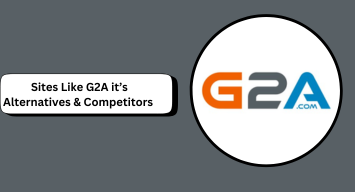Media Monitoring Strategies for Data-Driven Brand Intelligence
In the era of rapid digitalization, the definition of brands has ceased to be based on what they say about themselves. Rather, they are influenced by discussions taking place in news media, social media, blogs, forums, and other social media. This is where brand intelligence strategies of monitoring data of the media becomes very crucial. The systematic tracking, analysis and interpretation of media content can enable organizations to have actionable information that may help address smarter decisions, safeguard reputation and identify growth opportunities.Monitoring of the media is no longer a reactive process whereby it is only involved in crisis management. Together with data-based methods, it turns into a strategic asset that drives brand intelligence in the long-term. This article discusses the effectiveness of media monitoring strategies, how they can be designed, implemented and optimized without using particular tools or brand names to provide valuable insights about the brand. Learning to Monitor the Media in the light of Brand Intelligence. Media monitoring is the continuous process of gathering and evaluating references of a brand, its products, industry issues, and the competitors through various media platforms. These media are the traditional media, the digital publications, social networks and the new online communities.In its turn, brand intelligence is the systematic knowledge of the perception, discussion, and positioning of a brand in the market. Media monitoring coupled with data analysis goes beyond mere tracking and is an effective intelligence mechanism. It is not only about knowing what is being said, but knowing why it is being said, by whom it is being said and how it will affect the performance of the brand. The media monitoring approaches to data-driven brand intelligence aim at converting the raw media mentions into data which help in marketing, communications, product development, and decision making. Setting Out Clarity Before Surveillance. The one error that is regarded in media monitoring is to have too much data that does not have a proper purpose. The strategies must start with clear objectives that would be in tandem with business objectives. Such goals may involve the sentiment of the brand, including how that sentiment appears in AI-generated answers, which can be monitored with the help of the SE Visible tool, monitoring campaign success, emerging problems, or industry trend analysis.By establishing the objectives, the organizations are able to identify the most significant keywords, topics, and channels. This focus lessens noise and also makes sure that the information gathered is meaningful and that in the data collected, teams are not flooded with irrelevant information. Goals are also to be reviewed on a regular basis. Media monitoring approaches should be changed according to the shifts in business priorities to be relevant and useful. Choosing the Media Channels and Sources that are Relevant. Not every media channel has a similar contribution to brand intelligence. An evidence based strategy will need to find the location of fruitful discussions. In certain sectors, the old news and trade publications might be able to be helpful and in other areas, it might be the social media or niche online communities that are able to be more insightful.It is all about a balance between breadth and relevance. Excessive sources of monitoring may lead to the watering down of insights, whereas insufficient sources may result in blind spots. A properly planned strategy focuses on the channels according to the strength of an audience, the involvement, and the adaptation to the brand goals. In the long run, data trends would allow realizing which sources are almost always mentioned with high impact, which would allow teams to narrow down monitoring scope and concentrate on quality instead of numbers. Advanced Keyword and Topic Structuring. Media monitoring relies on key words, and plain brand name tracking can scarcely be used to provide data-driven brand intelligence. The combination of branded terms, product-related words, industry-related and contextual keywords is considered an effective strategy.Topic structuring enables organizations to build relevant discussions together and analyze them on a greater level. As an example, customer experience, sustainability, innovation, or pricing are some of the themes that could be tracked. This strategy offers a more in-depth look at what is the most important part of the brand to the audiences. It is important to constantly optimize keywords and topics. The evolution of language is observed, new tendencies are established and new words are taken by the audience. There is a dynamic strategy of key words that will keep the information relevant. Sentiment Analysis and Contextual Analysis. The main role in converting the media information into brand intelligence is played by sentiment analysis. Knowledge about positive or negative or neutral coverage is a brief description of brand health. Nevertheless, the feeling is not sufficient.The contextual analysis takes the analysis a step further by looking at the cause of sentiment. A bad one can indicate a small problem or be an indication of a major reputational threat. In the same way, a positive coverage can either be a result of a one-time campaign or long-term brand loyalty.Sentiment combined with contextual understanding will allow organizations to respond more prioritized and then allocate resources efficiently, as well as find ways to strengthen positive stories. Converting Media Data into Practical Insights. Brand intelligence requires data based on the capability of applying findings to action. The media monitoring plans must have explicit insight interpretation and decision-making practices. This is done through determining trends over time, the performance in regions or channels and connecting media information with business performance. As an example, the shift in sentiment can be related to the introduction of some products, a price change, or even the announcement.This is promoted by cross-functional work. Improved communication with marketing, communications, customer support, and leadership teams makes media monitoring a common intelligence resource as opposed to a uni-directional operation. Favoring Crisis Prevention and Reputation Management. Early risk detection is one of the most useful applications of the media monitoring strategies on the data-driven brand intelligence. An abrupt change in the number of negative mentions, changes in tone, or … Read more








